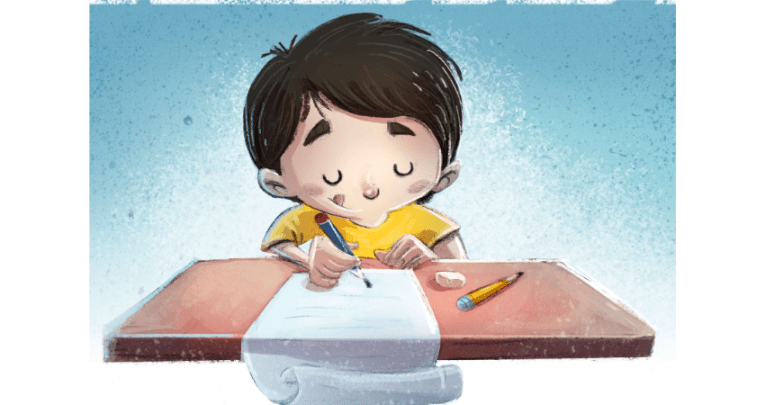Editing writing – Why revisions are important

Pupils need to know that improving on a written draft is not just making a neater version and correcting the odd spelling error…

- by Alex Quigley

If I had to identify one important writing process that pupils too often neglect, it would be revising their writing.
Why, though, do we so commonly disregard this vital strategy? It seems to me that we commonly misunderstand revising writing and confuse it with editing. So, what is the difference between these admittedly similar aspects of the writing process?
Revising vs editing
I like to use the following definitions: revising is making changes to the content of the writing in light of feedback and self-evaluation; editing is making changes to ensure the text is accurate and coherent.
Am I just splitting hairs here? You could argue the two processes – revising vs editing writing – can be blurred, which is a fair claim. Crucially though, whenever I observe writing in classrooms – or recall my own pupils’ efforts – children certainly attempt to edit, but they don’t really revise what they have written.
Almost all their attention goes to correcting their spelling and use of capital letters, along with picking up a few punctuation errors.
Pupils need to know that improving on a written draft is not just making a neater version and correcting the odd spelling error. Real-world examples can help with this. Daily newspapers are revised to give different slants on stories; science research is revised and rewritten for more general audiences.
Meanwhile, famous authors rework great prose or rewrite seminal sentences over and over. Ernest Hemingway rewrote the final page of A Farewell to Arms at least thirty-nine times to get the words right – now that is revising your writing for quality!
In primary school, given the emphasis on independent writing for year 6 assessments, the ability to revise their writing without guidance can prove crucial if children are to meet the ‘expected standard’ or better. In order to improve the quality of their writing, pupils need to take the time to work on early drafts with their audience firmly in mind.
Putting revision front and centre in the writing process
A key reason why pupils may neglect revising their writing is that they are overwhelmed by the sheer mass of moves required to improve on their initial efforts.
If they know they must consider spelling, accuracy, using interesting vocabulary, a range of sentence structures, showing off their knowledge and much more, is it any surprise that we drop revision? After all, it’s less easy to tick it off a list of success criteria.
Fortunately, we can encourage children to revise their writing independently by chunking the process down into more manageable steps. Use the following suggestions to put revision at the forefront of pupils’ thinking and actions.
Trending
Add, remove, refine
It’s important to make clear to pupils how, exactly, they should revise their writing. Teachers need to disaggregate the process into clearer steps.
First, pupils should add to improve, for example, by introducing more evidence, facts, or compelling style features. Then they need to read and revise to remove any unnecessary language, or sloppy sentences.
Finally, pupils should refine their sentences, through such strategies as adding in adjectives for effect, or reorganising a paragraph to make a clearer point.
The author’s chair
We can make feedback and revisions more audience-focused by asking pupils to sit in an ‘author’s chair’ and read what they’ve written aloud to their classmates. Invite pupils to comment constructively on what they have heard.
When children share writing with their peers – a real audience – they get the experience of reading it aloud and getting targeted feedback. It needs sensitive handling, but it can offer rich, even transformative, results.
Ask the editor
During the process of revising writing, tell pupils that they can ask the teacher (their ‘editor’) a specific number of questions to help them improve their writing.
Rationing feedback in this way, can get pupils thinking more selectively, and in increasingly refined ways, about what to change, and how.
Alex Quigley is the author of Closing the Writing Gap. A former teacher, he is now the head of content and engagement at the Education Endowment Foundation, alongside his personal writing and training for teachers.










